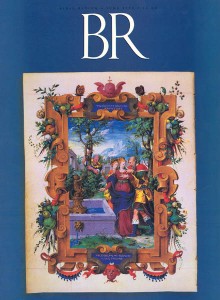A Worldwide Pilgrimage to Jerusalem
Not to result in a religious conversion, but to hearing the “teaching” that goes forth from Zion in the name of the God who is worshipped there. The universal is to be found in the particular.

Most people are familiar with the biblical vision of the coming of a time when nations will “beat their swords into plowshares, their spears into pruning hooks” and prepare for war no longer. The poem is found in slightly different versions in both the Book of Micah (4:1–5) and the Book of Isaiah (2:2–5). It may have been an independent piece which editors of both prophetic books used for their own purposes.
In this vision, the hill on which the Temple of Jerusalem stands is portrayed as the highest of all mountains of the earth. As though drawn by a powerful magnetic force, “all the nations”—or, as we read in the Micah version, “peoples” and “many nations”—will make a pilgrimage to Zion (Jerusalem), saying:
“Come let us go up to the mountain of the Lord,
to the house of the God of Jacob.
He will teach us his ways,
so that we may walk in his paths.”
Isaiah 2:3 (NlV)
Already a library member? Log in here.
Institution user? Log in with your IP address.

